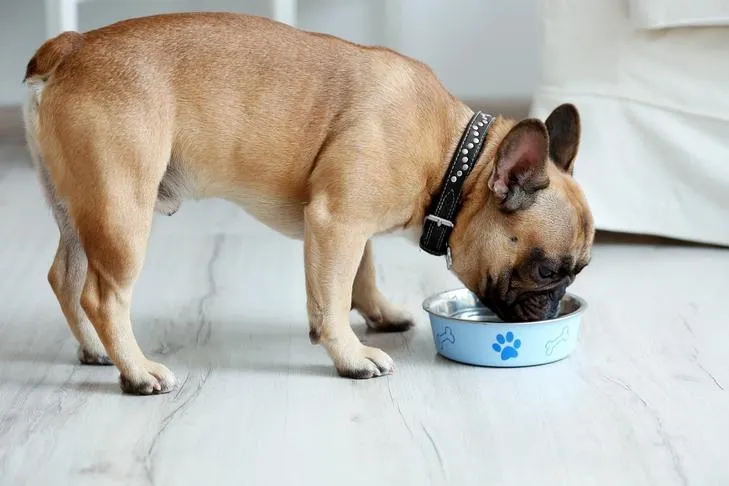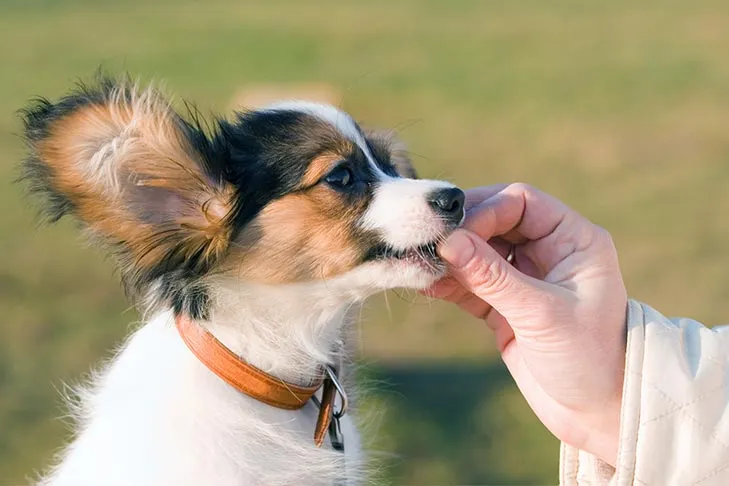As loving pet parents, it’s natural to wonder about sharing your favorite snacks with your furry friend. While a dog’s primary diet should always consist of high-quality dog food, many human foods are perfectly what foods are ok for dogs to eat as occasional treats, offering a variety of nutrients and a bonding experience. However, not all human foods are created equal when it comes to canine consumption, and understanding which items are safe and in what quantities is crucial for your dog’s health and well-being. This comprehensive guide from Dog Care Story will help you navigate the world of human foods, highlighting those that are beneficial and safe for your dog, while emphasizing moderation and proper preparation. Always remember that introducing new foods should be done gradually, and consulting your veterinarian is always recommended, especially if your dog has any underlying health conditions or dietary sensitivities.
Wholesome Human Foods Your Dog Can Safely Eat
Many everyday foods found in your kitchen can be safely incorporated into your dog’s diet as healthy supplements or treats. These options can add variety and provide additional nutritional benefits, provided they are prepared correctly and offered in appropriate portions. Always ensure these foods are free from harmful seasonings like salt, onion, or garlic, and any artificial sweeteners like xylitol.
Bread
Plain bread, in small amounts, is generally safe for dogs and won’t cause immediate harm. It should be free of spices, especially garlic or onion, and definitely no raisins, which are highly toxic to dogs. However, bread offers minimal nutritional value for canines and is high in carbohydrates and calories, similar to humans. Opt for homemade varieties over store-bought bread, as the latter often contains unnecessary preservatives. It’s best reserved as a very occasional treat rather than a regular staple.
Cashews
Cashews can be a healthy snack for dogs when given in moderation. They are a source of beneficial nutrients like calcium, magnesium, antioxidants, and protein. While cashews typically have less fat than some other nuts, consuming too many can still contribute to weight gain in dogs. Ensure they are unsalted to avoid excessive sodium intake, which is detrimental to canine health. A few unsalted cashews make for a nice, crunchy treat.
Cheese
Most dogs adore cheese, and it can be a delightful treat in small to moderate quantities. Unless your dog is lactose intolerant – a rare but possible condition – cheese can be a good source of protein and calcium. However, many cheeses are high in fat, so leaner options like cottage cheese or mozzarella are preferable. You might also find that your dog enjoys specialized dog chews made from dried cheese, such as Himalayan dog chews.
 An All American Dog resting its head on a kitchen table, looking intently at a block of cheese.
An All American Dog resting its head on a kitchen table, looking intently at a block of cheese.
Coconut
This versatile fruit offers several health benefits for dogs. Coconut contains lauric acid, known for its ability to help combat various bacteria and viruses. It can also be beneficial for improving bad breath and alleviating certain skin conditions, including hot spots, flea allergies, and general itchy skin. Both coconut milk and coconut oil are safe for dogs. When feeding fresh coconut, always ensure the hard, fibrous outer shell is completely removed, as it can pose a choking hazard or cause intestinal blockages if ingested.
Corn
Corn is a common and acceptable ingredient found in many commercial dog foods, serving as a good source of carbohydrates, fiber, and protein. When offering corn to your dog, it is crucial to ensure it is off the cob. The cob itself is difficult for dogs to digest and can lead to severe intestinal blockages requiring veterinary intervention. Cooked corn kernels, without butter or salt, are a safe and tasty treat for your canine companion.
Eggs
Cooked eggs are an excellent source of protein and a highly digestible food for dogs. They are particularly good for settling an upset stomach. It’s essential that eggs are always fully cooked, as raw egg whites contain avidin, an enzyme that can interfere with biotin absorption, potentially leading to a biotin deficiency over time. Scrambled, boiled, or poached eggs, plain and without added fats or seasonings, are ideal for your pet.
Fish
Fish, rich in healthy fats and essential amino acids, can provide a significant health boost for your dog. Salmon and sardines are particularly beneficial. Salmon is packed with vitamins and protein, while sardines offer easily digestible bones, providing extra calcium. Always cook fish thoroughly and ensure all tiny bones, especially in larger fish like salmon, are meticulously removed to prevent choking or internal injury. Never feed your dog uncooked or undercooked fish, as it can contain harmful parasites. Limit fish intake to no more than twice a week.
Ham
While ham is generally safe for dogs, it is not the healthiest choice due to its high sodium and fat content. Sharing a very small, plain, cooked piece occasionally is acceptable, but it should not become a regular habit. Large amounts can contribute to weight gain and pancreatitis. Always ensure it’s unseasoned and boneless.
 A contented French Bulldog eating kibble from a food bowl on the floor at home.
A contented French Bulldog eating kibble from a food bowl on the floor at home.
Honey
Honey is a natural powerhouse of nutrients, including vitamin A, potassium, calcium, magnesium, copper, and a wealth of antioxidants. Feeding dogs small amounts of local honey may even help with seasonal allergies by gradually introducing small amounts of local pollen, which can build up immunity. Beyond consumption, honey’s antimicrobial properties also make it useful as a topical treatment for minor burns and superficial cuts on their skin.
Milk
Dogs can drink milk, but caution is advised. While a small amount is usually fine, some dogs are lactose intolerant and may experience digestive upset, such as diarrhea, if they consume dairy products. If you’re unsure, monitor your dog closely after offering a tiny amount, and consider sticking to water as their primary beverage. Plant-based milk alternatives like unsweetened almond milk can also be given in very small amounts.
Peanut Butter
Peanut butter is a popular and often excellent source of protein for dogs, containing heart-healthy fats, vitamins B and E, and niacin. The healthiest option is raw, unsalted peanut butter. It is critically important to read the label carefully to confirm that the peanut butter does not contain xylitol. Xylitol is a sugar substitute that is highly toxic to dogs and can cause a rapid drop in blood sugar, liver failure, and even death.
Peanuts
Unlike almonds, plain peanuts are safe for dogs to eat. They are packed with beneficial fats and proteins that can contribute to your dog’s overall health. However, like cashews, moderation is key due to their fat content, as too much fat can lead to pancreatic issues. Always avoid salted peanuts, as excessive salt is difficult for a dog’s system to process and can lead to sodium ion poisoning.
Popcorn
Unsalted, unbuttered, air-popped popcorn can be a safe and fun treat for your dog in moderation. It contains riboflavin and thiamine, which support eye health and digestion, along with small amounts of iron and protein. It is vital to ensure all kernels are fully popped, as unpopped kernels can pose a significant choking hazard or cause dental damage.
Pork
Pork is a highly digestible protein source for dogs, rich in amino acids. While it typically contains more calories per pound than some other meats, it can be a good addition to their diet. Pork may also be less likely to trigger allergic reactions in some pets compared to other common proteins like chicken or beef. Always serve cooked, plain pork without bones, excessive fat, or heavy seasonings.
Quinoa
Quinoa, a complete protein, has gained popularity as a healthy ingredient in high-quality dry dog foods. Its robust nutritional profile makes it an excellent alternative to starches like corn, wheat, and soy, which are often used as fillers in kibble. Cooked quinoa can be mixed with your dog’s regular food to boost its nutritional content.
 A fluffy Samoyed puppy happily laying in lush green grass outdoors on a sunny day.
A fluffy Samoyed puppy happily laying in lush green grass outdoors on a sunny day.
Salmon
As previously mentioned, fully cooked salmon is an outstanding source of protein, healthy omega-3 fatty acids, and amino acids. These nutrients are crucial for promoting joint and brain health and giving a dog’s immune system a significant boost. However, it is paramount to avoid raw or undercooked salmon, as it can contain parasites that cause “salmon poisoning disease,” leading to severe vomiting, diarrhea, dehydration, and in extreme cases, even death. Thoroughly cooking the salmon will eliminate these dangerous parasites. If you’re looking for what is the best meat for dogs to eat, salmon is certainly a strong contender.
Shrimp
A few shrimp given occasionally can be a healthy treat for your dog, provided they are fully cooked and completely shelled, including the tail, head, and legs. Shrimp are rich in antioxidants, vitamin B-12, and phosphorus, while being low in fat, calories, and carbohydrates. This makes them a lean and nutritious option for a snack.
Tuna
Dogs can eat tuna, but only in very small amounts and infrequently. In moderation, cooked, fresh tuna is an excellent source of omega-3 fatty acids, which support heart and eye health. Canned tuna, however, should be given sparingly due to its small mercury content and higher sodium levels. If you offer canned tuna, ensure it is packed in water (not oil) and contains no added spices. A little bit of tuna juice can also be a tasty and safe treat. When considering what is the healthiest human food for dogs, tuna is beneficial, but requires careful portion control.
Turkey
Plain, cooked turkey is a safe and healthy protein source for dogs. Before offering it, be sure to remove any excess fat, skin, and especially bones. Poultry bones can easily splinter during digestion, potentially causing severe internal blockages or even tears in the intestines. Any turkey prepared with excessive salt, seasonings, onions, or garlic should be strictly avoided, as these ingredients are harmful to dogs.
Wheat or Grains
The idea that dogs must be grain-free is a common misconception. Grains, including wheat, corn, and oats, are perfectly acceptable for most dogs and can be excellent sources of protein, essential fatty acids, and fiber. Unless your dog has a diagnosed grain allergy, there’s no inherent reason to exclude grains from their diet. In fact, many veterinarians advise against unnecessary grain-free diets. If you suspect your dog has allergies, consult your veterinarian for proper diagnosis and dietary recommendations. Understanding a list of what dogs can and cannot eat helps clarify these dietary aspects.
Yogurt
Plain yogurt is a perfectly acceptable and often beneficial snack for dogs. The active bacteria in plain yogurt can act as probiotics, helping to strengthen and support a healthy digestive system. However, similar to milk, some dogs may have difficulty digesting dairy products. Always opt for plain, unsweetened yogurt, and absolutely avoid any yogurts containing artificial sweeteners, especially xylitol, which is highly toxic to dogs.
 A small Papillon puppy gently and carefully taking a treat from a human hand.
A small Papillon puppy gently and carefully taking a treat from a human hand.
Crucial Foods Your Dog Cannot Eat
While many human foods offer safe and healthy treat options, it is absolutely essential to be aware of the foods that are dangerous or toxic for dogs. Some common human foods can cause severe illness, long-term health issues, or even be fatal if ingested by your canine companion. Always keep items like chocolate, grapes, raisins, onions, garlic, avocado, macadamia nuts, and foods containing xylitol strictly out of your dog’s reach. If you suspect your dog has consumed a toxic food, contact your veterinarian or an emergency animal hospital immediately. Knowing what are foods dogs cant have is just as important as knowing what they can.
References:
- American Kennel Club (AKC) Expert Advice articles on dog nutrition and safe foods for dogs.
